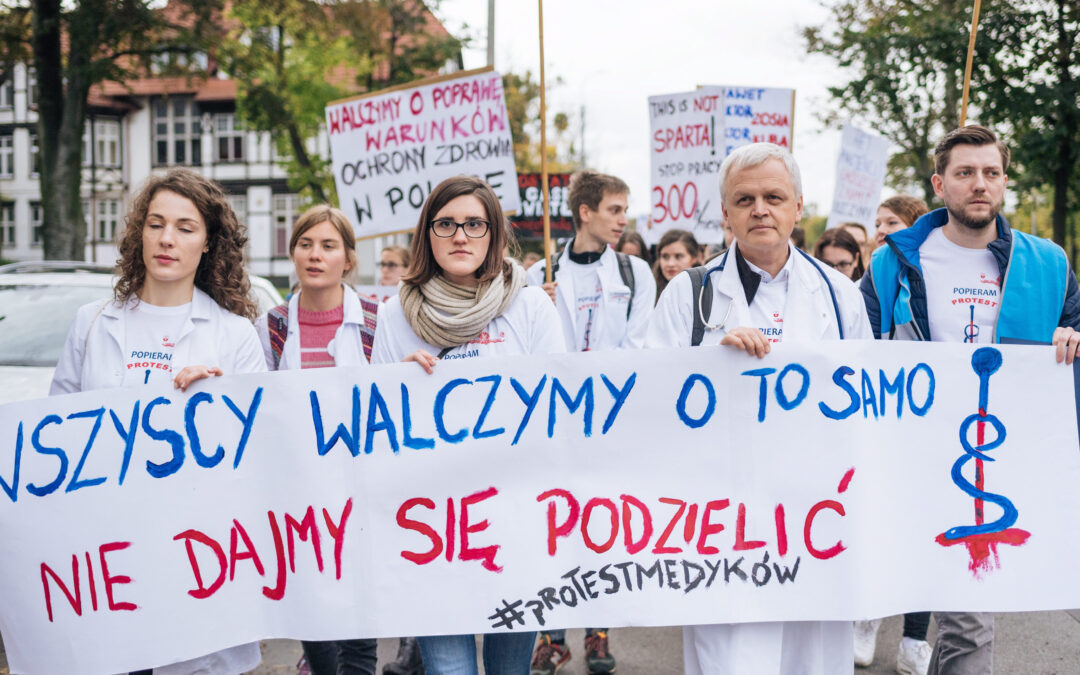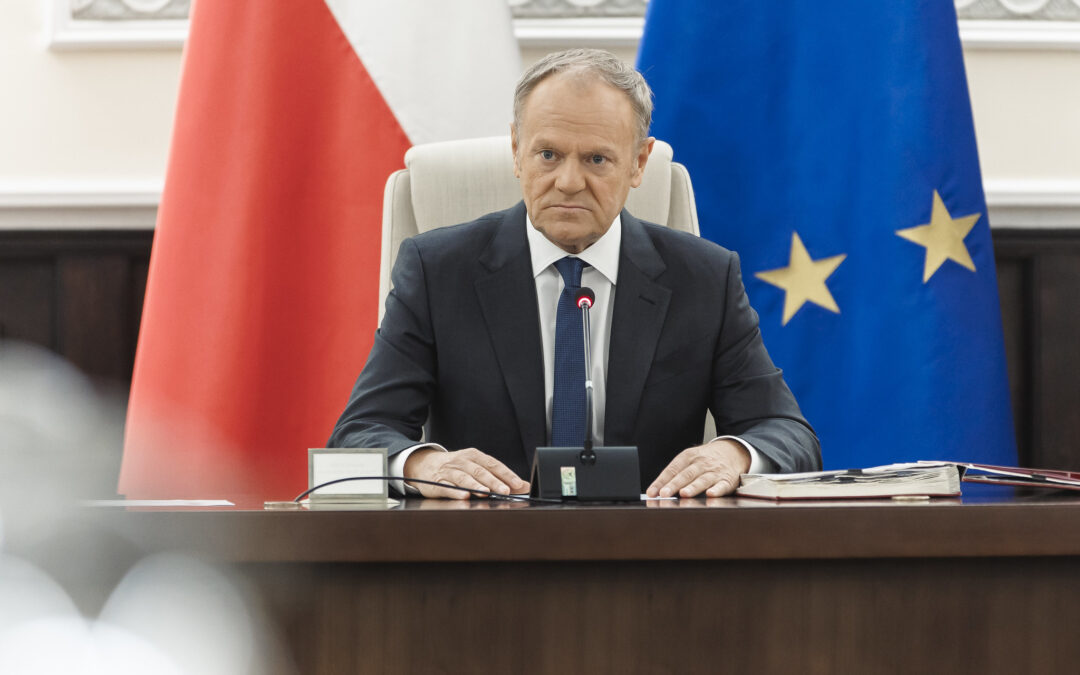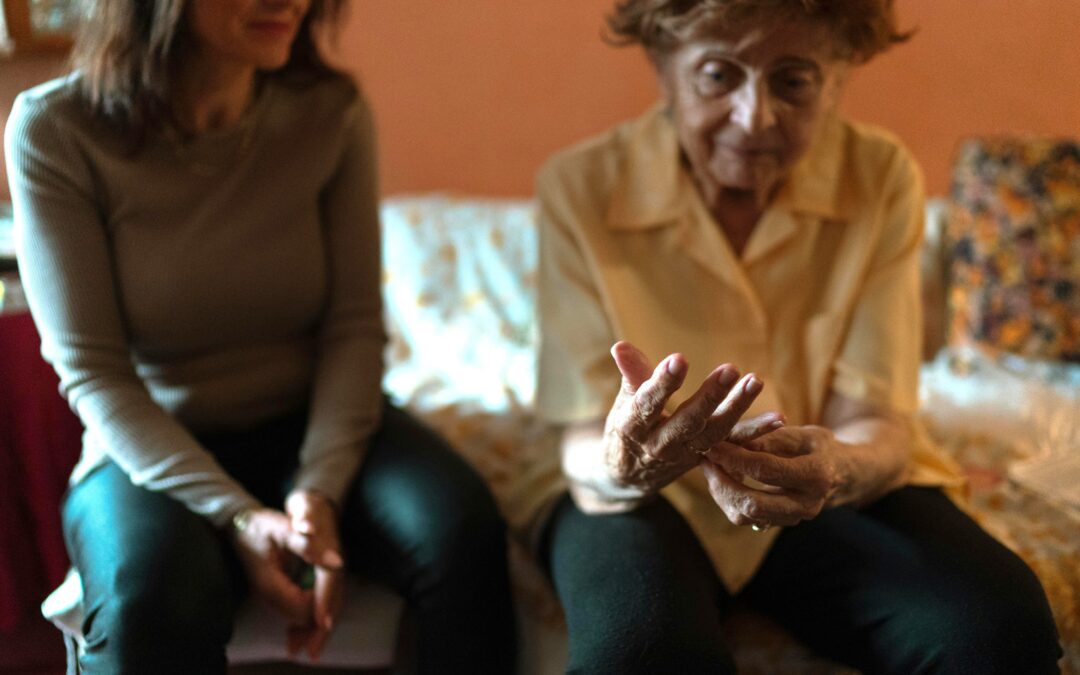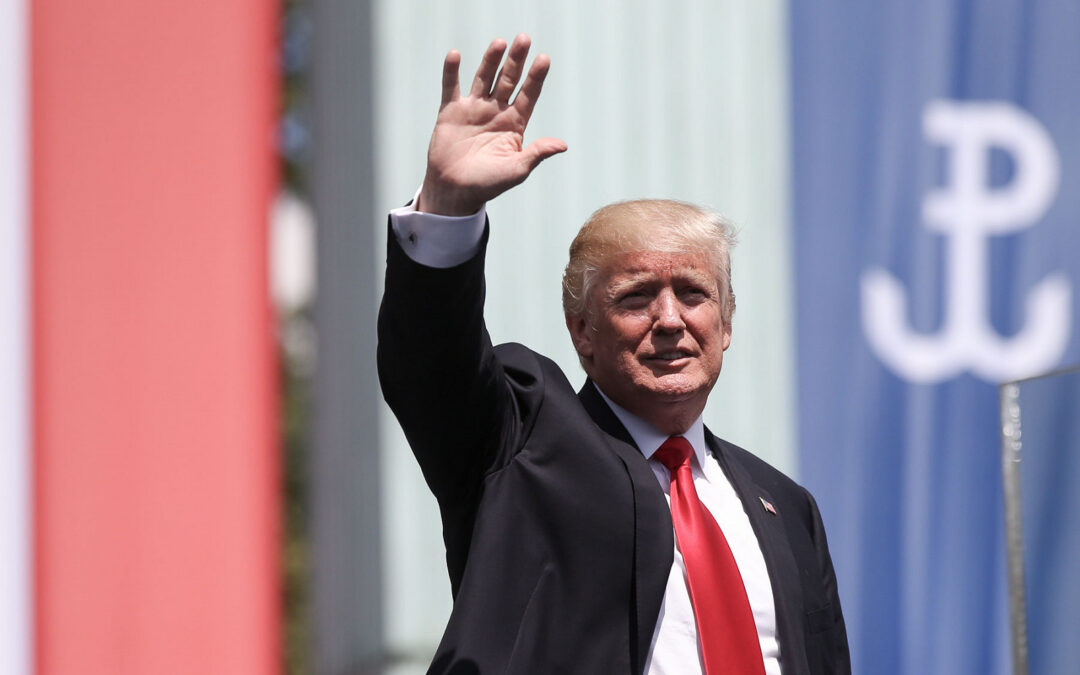Poland’s largest doctor’s union and an association representing doctors in training have announced a protest to be held on 30 September, just two weeks before general elections.
They are demanding the withdrawal of recently introduced changes to the prescription system – which have been widely criticised by medics and contributed to the resignation of the health minister this week – and an increase in Poland’s healthcare spending, which is one of the lowest in the European Union.
“Health care MUST become a key item on the political agendas for these elections,” wrote the Doctors’ Trade Union of Poland (OZZL). “No matter who sits in parliament, we expect real change, not empty promises. We expect respect, dialogue and care for the health of the Polish patient.”
Ogłaszamy PROTEST lekarzy w ochronie zdrowia pacjentów 30 września‼️
Wspólnie z Porozumienie Rezydentów OZZL mówimy stanowcze NIE bylejakości w zarządzaniu ochroną zdrowia w Polsce! 🛑🤚
Żądamy, jako postulat zerowy, wycofania się ze wszystkich szkodliwych i bezprawnych zmian w… pic.twitter.com/CgEGB735rA
— Ogólnopolski Związek Zawodowy Lekarzy (@ZK_OZZL) August 10, 2023
The announcement of the protest came just two days after health minister Adam Niedzielski resigned from his position. No official reason was given, but the decision came after Niedzielski had faced widespread criticism for revealing a doctor’s personal health information.
That doctor, Piotr Pisula, had been among the many medics questioning Niedzielski’s decision to limit their ability to issue digital prescriptions. In response, the health minister revealed that Pisula had prescribed himself mental-health medication and painkillers.
The OZZL now hopes that Niedzielski’s successor as health minister – Katarzyna Sójka, who is herself a doctor by profession – will “withdraw all the harmful and unlawful changes in writing prescriptions introduced by Adam Niedzielski”.
The ministry had justified the restrictions as a necessary measure to clamp down on so-called “prescription factories” that sell large numbers of prescriptions online. But doctors say the changes have left some patients, especially the elderly and seriously ill, unable to receive vital medicines.
For more on the controversy that led to the health minister's resignation, see our report from yesterday https://t.co/l8aFTjv3SV
— Notes from Poland 🇵🇱 (@notesfrompoland) August 8, 2023
The doctor’s union is also calling for spending on healthcare to be raised to a minimum of 8% of GDP.
Poland has one of the lowest relative healthcare expenditures in the EU, which at 6.5% of GDP in 2020 was ahead of only Romania and Luxembourg, according to Eurostat data.
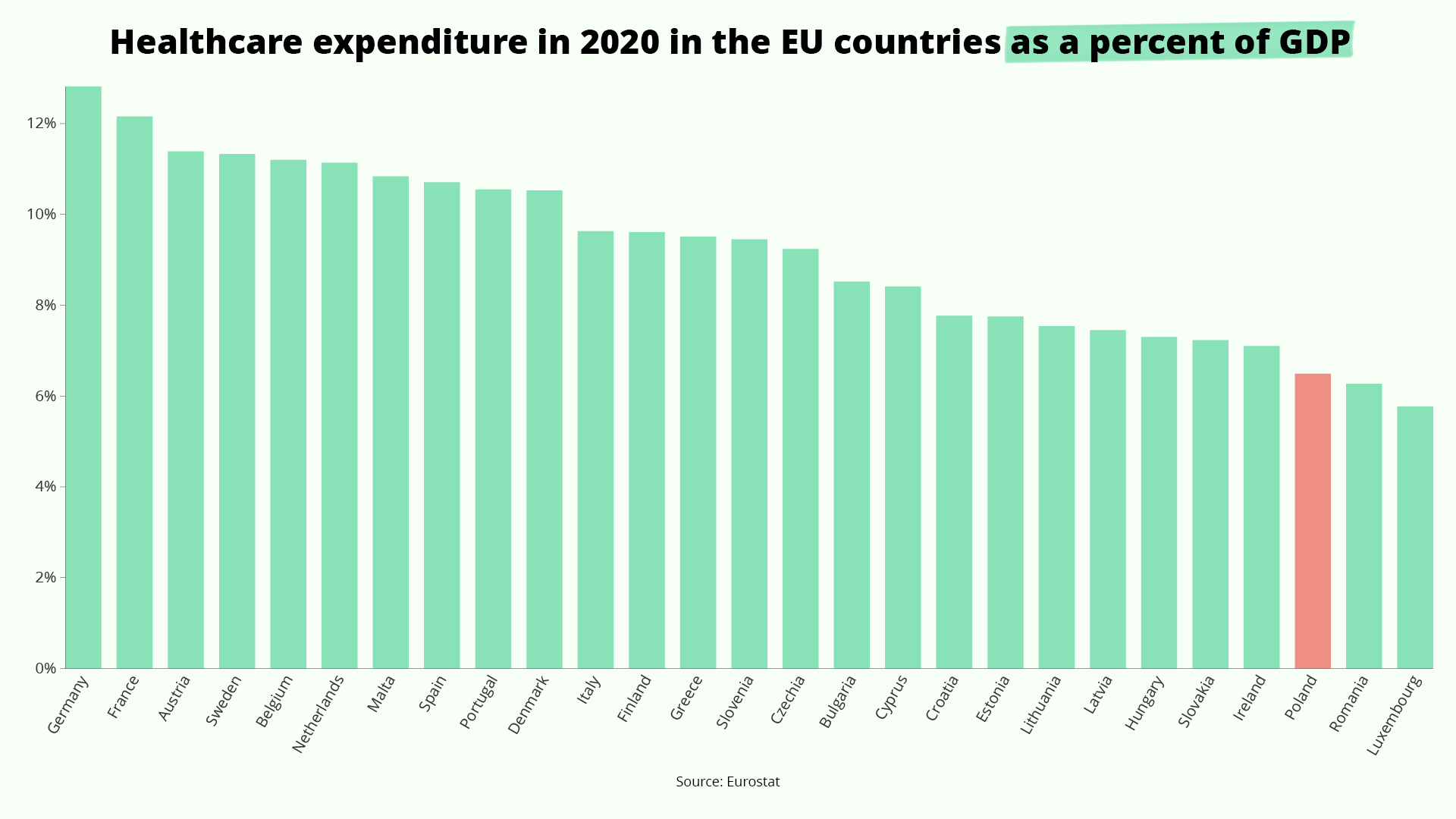
Another demand is the introduction of staffing standards that ensure an adequate number of doctors per patient.
In 2021, Poland had 3.44 doctors and 5.68 nurses per 1,000 inhabitants, which were among the lowest figures in the Organisation for Economic Co-operation and Development (OECD).

The OZZL and Residents’ Agreement (Porozumienie Rezydentów), which represents doctors in training, are also calling for better quality education of doctors.
Residents’ Agreement claims that there has been an “extremely dangerous and unlawful” degradation in the quality of medical education in Poland in recent years.
Last academic year, a record 9,500 people entered medical school in Poland. This was made possible, among other things, by medical studies opening up at universities that had not previously trained medics.
The establishment of new faculties is in line with EU law, which states that future doctors should train at universities or under their supervision. This, however, provoked objection from the medical community in Poland, which asked the European Commission for clarification.
“Letting unprepared doctors go on the market puts the patient at risk,” says Residents’ Association. “It preys on the ambitions and dreams of young people.”
Neither it nor the OZZL has yet defined the protest’s form or exact location. For now, they have only indicated that it will take place in Warsaw on 30 September, two weeks before the parliamentary elections set for 15 October.
Doctors and other medical professionals have held a series of strikes and protests in recent years, in particular to demand greater investment in healthcare and better pay and conditions for staff.

Notes from Poland is run by a small editorial team and published by an independent, non-profit foundation that is funded through donations from our readers. We cannot do what we do without your support.
Main image credit: Bartosz Banka / Agencja Wyborcza.pl

Alicja Ptak is deputy editor-in-chief of Notes from Poland and a multimedia journalist. She has written for Clean Energy Wire and The Times, and she hosts her own podcast, The Warsaw Wire, on Poland’s economy and energy sector. She previously worked for Reuters.
